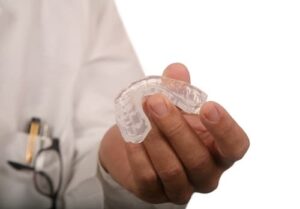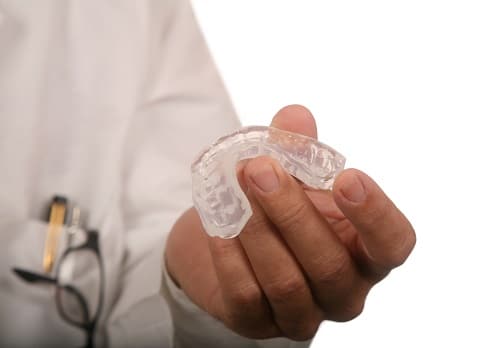Understanding Bruxism
The grinding and clenching of teeth is known as bruxism. This condition impacts the lives of many people and can be quite painful and destructive for the teeth. Fortunately, there are a few ways to reduce the impact of bruxism on your dental health. We are familiar with all of these ways at East Peak Dental.
Why Do People Grind Their Teeth?
Although the exact cause is unknown, most people believe it is due to stress and anxiety. Teeth grinding is a natural reaction of your body to nervousness or tense situations. However, there may be other causes as well, including: smoking, caffeine, alcohol consumption, crooked teeth, snoring, sleep apnea, or an abnormal bite. What most people aren’t aware of is that bruxism usually occurs during sleep at night. In many cases, bruxism occurs at night due to sleep apnea.
Symptoms And Effects Of Bruxism
Many people aren’t aware of their own grinding, which is why it is important to be on the lookout for certain symptoms of bruxism, including:
- Teeth grinding
- Facial pain
- Dull headaches
- Sore jaw
- Fatigue due to lack of sleep
Grinding your teeth occasionally is not a cause for real concern. However, consistent bruxism leads to broken teeth, loss of tooth enamel, and in many serious cases, loss of teeth. Chronic bruxism can cause your teeth to loosen or fracture which eventually leads to tooth loss. Moreover, chronic teeth grinding also causes your teeth to significantly wear down. When this occurs, you may need to opt for tooth restoration procedures, such as dental implants, crowns, bridges, dentures, and root canals. Additionally, not only can chronic bruxism lead to tooth loss, but it can also affect your jaw and cause TMD or TMJ problems.
Nightguards
In most cases, bruxism is treated by wearing a nightguard for your teeth while you sleep. Also known as dental guards or mouth guards, nightguards work by placing a barrier between your teeth. When you clench your jaw to grind your teeth, the night guard works to lighten the tension and provide additional cushioning to the muscles in the jaw. Not only does this cushioning help prevent jaw and facial pain, but it also protects the enamel of your teeth.

Nightguards are available over the counter without a prescription, and you can also purchase them directly from the dentist or from an online retailer. It is important to note that there are a few ways in which night guard can be fitted, which is why you will have to find one that works best for your individual needs.
Tips To Help Adjust To Nightguards For Teeth
Adjusting to night guards can be a little difficult for most people. Here are a few tips that can help you easily adjust to them:
- Choose the thinnest nightguard
- Make a habit of wearing your night guard by using it for at least 4 to 6 weeks
- Wear your nightguard right before you sleep. Don’t attempt to wear it before you’re ready for bed, otherwise it will feel weird and uncomfortable
If you notice any signs of bruxism, you should pay a visit to your dentist. You can book an appointment at our clinic East Peak Dental by calling us at (775) 580-7410.
Ready to embrace cutting-edge dental technology and take control of your oral health, including addressing bruxism? Schedule your appointment with East Peak Dental in South Lake Tahoe today. Our advanced CBCT technology ensures unparalleled precision and care. Your smile deserves the best – don't hesitate, secure your appointment now!

